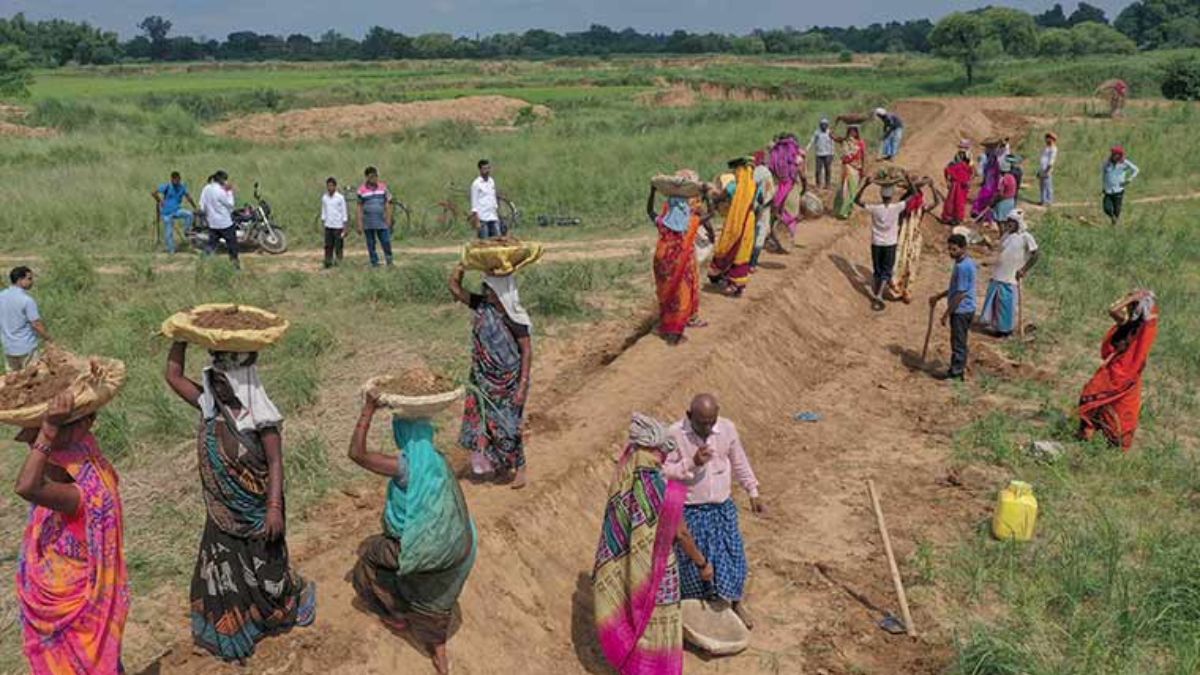MGNREGA: Parliament panel slams 'unacceptably low' wage, seeks uniform rates across states
 MNREGA workers in Thekha in Chandauli district in Uttar Pradesh [File] | AP
MNREGA workers in Thekha in Chandauli district in Uttar Pradesh [File] | AP
The Parliamentary Standing Committee on Rural Development and Panchayati Raj has questioned the “unacceptably low” wage rates under the Mahatma Gandhi National Rural Employment Guarantee Act (MGNREGA) and urged the Centre to revise them in line with rising inflation. The committee’s report, tabled in Parliament on Thursday, also called for a uniform wage rate across the country and an increase in the guaranteed days of employment from 100 to 150.
While the Ministry of Rural Development (MoRD) defended its existing mechanism for wage revision, the committee said the current average daily wage of around Rs 200 in many states was “completely out of sync” with the rising cost of living. “Such low wage rates is one of the major reasons for workers opting out of MGNREGA,” the panel observed, warning that this undermines the scheme’s objective of providing financial security to rural households.
In its reply, the ministry said wage rates are revised annually, based on the Consumer Price Index for Agricultural Labour (CPI-AL), and that no state’s wage is allowed to fall below the previous year’s level. For 2024–25, the overall increase in notified wages is around 7 per cent compared to 2023–24. The ministry also pointed out that states and Union Territories are free to provide higher wages than those notified by the Centre.
Headed by Congress MP Saptagiri Sankar Ulaka, the committee expressed dissatisfaction with the “stereotyped” response, noting that the disparity in wages across states violates the principle of “equal pay for equal work” under Article 39(d) of the Constitution. “It is unfathomable as to why the ministry is not able to notify a unified wage rate under MGNREGA across the country, particularly when the scheme is mostly funded by the Centre,” the report said, urging the ministry to “relook into this matter urgently.”
The committee also reiterated its earlier recommendation to raise the guaranteed days of employment from 100 to 150. Although the law allows states to fund additional days, the panel said this puts beneficiaries at the mercy of state budgets. “The demand of needy beneficiaries should not hinge upon the will of the State Governments,” it said, calling for an amendment to the Act to make 150 days the national benchmark.
Calling MGNREGA the last “fall-back option” for millions of rural poor, the committee said the scheme needs to be revamped to address population growth and emerging rural challenges. “MGNREGA is a last ‘fall-back’ option for numerous rural people, and the amount of expenditure under it also elicits a keen interest in the scheme by the poor and marginalised. The scheme needs to be revamped, keeping in view the rising population of the country and emerging challenges associated with it,” the reported table in the parliament said.
It asked the ministry to take a “cogent and empathetic” approach to ensure that wage revisions and employment guarantees meet the ground realities of inflation and rural distress.
India